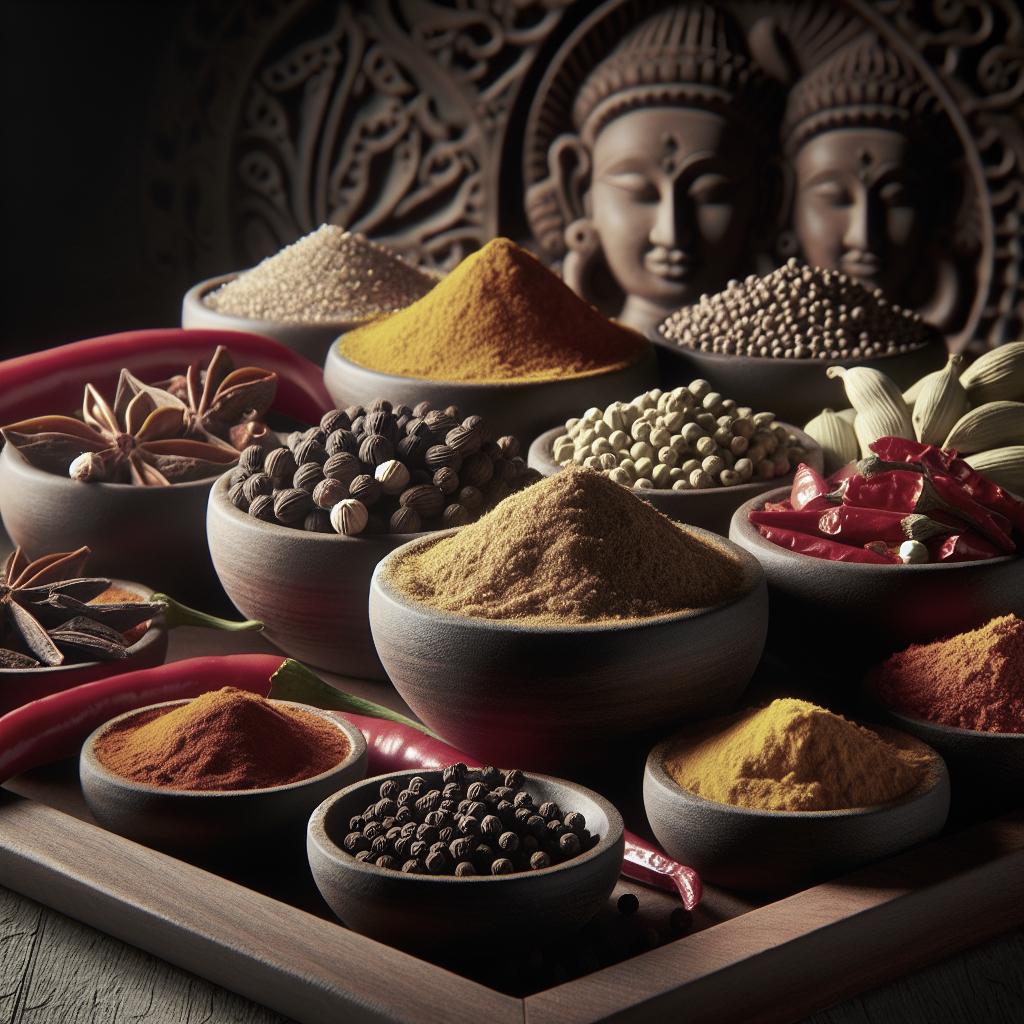“`html
How to Create a Balanced Vegetarian Meal Plan
Embarking on a vegetarian diet can be a fulfilling journey toward health and wellness. This blog post will guide you through creating a balanced vegetarian meal plan tailored to your nutritional needs. From explaining the core of what a vegetarian diet entails to laying out a diverse weekly menu, you’ll discover the benefits of vegetarianism and receive practical meal-prep strategies. With detailed breakdowns of daily meals and snacks for a week, reinforced by frequently asked questions, you will emerge equipped to embrace a vegetarian lifestyle enthusiastically. Let’s dive into the fundamentals of nurturing a healthy vegetarian meal plan that ensures you get all essential nutrients while enjoying varied and delicious meals.
How We Create Meal Plans
Creating a meal plan starts with understanding the nutritional needs of individuals. We carefully consider macronutrients, such as proteins, carbohydrates, and fats, to ensure every meal is balanced and fulfilling. Our approach incorporates various food groups, emphasizing whole grains, legumes, fruits, and vegetables to maintain diversity and nutritional adequacy.
Our meal plans are guided by a commitment to variety, wide-ranging in access to nutrients. We prioritize seasonal and accessible ingredients, allowing for easy meal preparation without compromising nutritional value. By interspersing recipes with fresh produce, we aim to rejuvenate your taste buds while nourishing your body.
Why This Meal Plan Is Great for You
Our vegetarian meal plan is tailor-made to support your health goals. It includes a range of meals to provide comprehensive nutrition, promoting a balanced intake of essential vitamins and minerals often overlooked in a vegetarian diet. By following this meal plan, you can achieve better heart health, maintain a healthy weight, and potentially reduce your risk of chronic diseases.
This plan also considers lifestyle factors, offering flexibility in preparation time and ingredient substitution to accommodate various schedules and preferences. The versatility of the meal options makes it easier to incorporate into your everyday life, offering a sustainable dietary approach rooted in wellness and vitality.
Frequently Asked Questions
Is it challenging to get enough protein on a vegetarian diet? Not at all! There is a plethora of plant-based protein sources, including beans, lentils, tofu, and quinoa, that are integrated into this meal plan to ensure adequate protein intake throughout the week.
Do I need supplements for a vegetarian diet? While the meal plan is designed to be nutritionally complete, some nutrients like Vitamin B12 and Omega-3 fatty acids might require supplementation. Consulting with a healthcare provider can provide personalized guidance.
What Is a Vegetarian Diet?
A vegetarian diet excludes meat, fish, and poultry, focusing on plant-based foods such as fruits, vegetables, grains, nuts, and seeds. It is a flexible dietary pattern that can be modified based on personal ethical beliefs, health priorities, or taste preferences.
Vegetarianism covers several variants, including lacto-vegetarian, ovo-vegetarian, and lacto-ovo vegetarian, which incorporate dairy and eggs, allowing for more diverse nutrient sources. Understanding these variations helps in creating a meal plan that aligns with specific individual preferences.
Benefits of a Vegetarian Diet
Numerous studies link vegetarian diets to lower risks of heart disease, hypertension, and type 2 diabetes. This is largely due to the higher intake of fiber, antioxidants, and phytochemicals, which play crucial roles in maintaining heart and metabolic health.
A vegetarian diet can also contribute to effective weight management. The higher fiber content in plant-based foods helps regulate body weight by enhancing satiety and reducing overall calorie intake without sacrificing nutrient density.
What to Eat on a Vegetarian Diet
A balanced vegetarian diet emphasizes a colorful array of fruits and vegetables, whole grains like quinoa and brown rice, high-protein legumes like beans and lentils, and nuts and seeds for healthy fats. These ingredients form the backbone of our meal plan.
Additionally, nutrient-dense dairy alternatives, such as almond or soy milk, and tofu, provide essential nutrients like calcium and protein, ensuring well-rounded meals. Incorporating a variety of spices and herbs enhances flavor, making the meals enjoyable and exciting.
How to Meal-Prep Your Week of Meals
Effective meal-prepping begins with planning and organization. Start by listing down all the recipes and identifying common ingredients to streamline grocery shopping. Ensure you have airtight containers ready to preserve the freshness of your meals.
Allocate time over the weekend to prepare bulk ingredients like quinoa or roasted vegetables, which can be used in multiple meals throughout the week. Dedicating time to prep in advance minimizes daily cooking stress, allowing for more leisure time and consistency in maintaining dietary habits.
Day 1
Breakfast (316 calories)
Start your day with a delicious bowl of overnight oats topped with mixed berries and sliced almonds. This fiber-rich breakfast ensures sustained energy, kick-starting your morning on a healthy note.
A.M. Snack (206 calories)
Enjoy a refreshing smoothie made with banana, spinach, and almond milk, providing a nutrient-packed boost between meals.
Lunch (385 calories)
Savor a Mediterranean quinoa salad featuring cucumbers, tomatoes, and feta cheese, drizzled with a light lemon-vinaigrette.
P.M. Snack (146 calories)
A handful of trail mix combining walnuts, dried mango, and pumpkin seeds offers a satisfying crunch and energy pick-me-up.
Dinner (437 calories)
Wrap up your day with a hearty bowl of chickpea curry served with brown rice and steamed broccoli for a well-balanced, protein-rich meal.
Day 2
Breakfast (344 calories)
Delight in a stack of whole-grain pancakes topped with fresh strawberries and a drizzle of maple syrup.
A.M. Snack (182 calories)
Enjoy a bowl of yogurt with a dash of granola and sliced kiwi, providing a refreshing burst of flavor and energy.
Lunch (455 calories)
Encounter a blend of flavors with a hummus wrap filled with mixed veggies, spinach, and sprouts, delivering a satisfying and nourishing lunch option.
P.M. Snack (77 calories)
Indulge in a sweet treat with a small apple paired with a tablespoon of peanut butter, delivering a dose of healthy fats.
Dinner (458 calories)
Relish a stuffed bell pepper with quinoa, black beans, and avocado, topped with salsa for a vibrant and nutrient-dense dinner.
Day 3
Breakfast (316 calories)
Wake up to a wholesome smoothie bowl topped with banana slices, chia seeds, and coconut flakes for an energizing start.
A.M. Snack (206 calories)
A fruit salad with a mix of melon, pineapple, and grapes can provide a refreshing and hydrating snack option.
Lunch (455 calories)
For lunch, enjoy a tofu stir-fry with mixed vegetables served over a bed of jasmine rice, offering a savory and nutritious meal.
P.M. Snack (125 calories)
Munch on celery sticks with hummus for a satisfying crunch and protein engagement.
Dinner (414 calories)
End your day with a bowl of lentil soup accompanied by a slice of whole-grain bread, warming your soul with spiced comfort.
Day 4
Breakfast (344 calories)
Savor an avocado toast topped with cherry tomatoes on whole-grain bread for a dose of healthy fats and flavors.
A.M. Snack (182 calories)
A handful of almonds coupled with apricot slices serves as a filling and nutritious snack.
Lunch (455 calories)
Dig into a Caprese salad with fresh mozzarella, tomatoes, and basil, bringing a fresh Italian taste to your meal.
P.M. Snack (37 calories)
Enjoy sliced cucumber with lemon and a sprinkle of salt for a refreshing, low-calorie afternoon refresher.
Dinner (477 calories)
Delight in a veggie stir-bitup with udon noodles, tofu, and a colorful array of vegetables tossed in sesame soy sauce for a flavorful feast.
Day 5
Breakfast (316 calories)
Begin your morning with a colorful smoothie containing spinach, mango, and a sprinkle of flax seeds for a nutrient-dense boost.
A.M. Snack (206 calories)
Pair baby carrots with a homemade chickpea dip for a sturdy and energizing snack.
Lunch (455 calories)
Relish a soba noodle salad tossed with edamame, radish, and sesame dressing, offering an excellent balance of textures and tastes.
P.M. Snack (125 calories)
Snack on a peach with a spoonful of almond butter, providing natural sweetness and healthy fats.
Dinner (410 calories)
Savor a black bean taco with corn tortillas and fresh avocado, sprinkled with lime and cilantro for a tasty end to the day.
Day 6
Breakfast (344 calories)
Indulge in oatmeal garnished with cinnamon, apple slices, and pecans for a cozy start.
A.M. Snack (182 calories)
Enjoy a bowl of diced watermelon paired with a few mint leaves, delivering hydration and flavor.
Lunch (400 calories)
Savor a creamy pumpkin soup enriched with coconut milk, coriander, and a side salad for freshness.
P.M. Snack (193 calories)
Enjoy baked sweet potato wedges with aioli for a tasty and hearty afternoon pick-me-up.
Dinner (399 calories)
Feast on a hearty mushroom risotto blended with parmesan cheese and fresh herbs to close out the day.
Day 7
Breakfast (316 calories)
Start your last day with a mixed berry parfait layered with Greek yogurt and granola.
A.M. Snack (125 calories)
Savor a boiled egg with a sprinkle of salt and pepper, a simple yet nourishing snack.
Lunch (400 calories)
Enjoy an open-face sandwich of grilled eggplant, goat cheese, and arugula, providing a delightful balance of flavors.
P.M. Snack (206 calories)
Snack on a cup of blueberries with a dollop of honey for a natural and refreshing sweet treat.
Dinner (440 calories)
End your week with a seared tofu steak served with garlic sautéed kale and quinoa, offering a heartwarming end to your meal planning journey.
Summary of Main Points
| Day | Meals | Total Calories |
|---|---|---|
| Day 1 | Overnight Oats, Smoothie, Quinoa Salad, Trail Mix, Chickpea Curry | 1490 |
| Day 2 | Pancakes, Yogurt & Granola, Hummus Wrap, Apple & Peanut Butter, Stuffed Pepper | 1516 |
| Day 3 | Smoothie Bowl, Fruit Salad, Tofu Stir-Fry, Celery & Hummus, Lentil Soup | 1516 |
| Day 4 | Avocado Toast, Almonds & Apricots, Caprese Salad, Cucumber, Veggie Stir-fry | 1495 |
| Day 5 | Spinach Smoothie, Carrots & Dip, Soba Salad, Peach with Almond Butter, Black Bean Taco | 1503 |
| Day 6 | Oatmeal, Watermelon, Pumpkin Soup, Sweet Potato Wedges, Mushroom Risotto | 1518 |
| Day 7 | Berry Parfait, Boiled Egg, Eggplant Sandwich, Blueberries, Tofu Steak | 1487 |
“`


